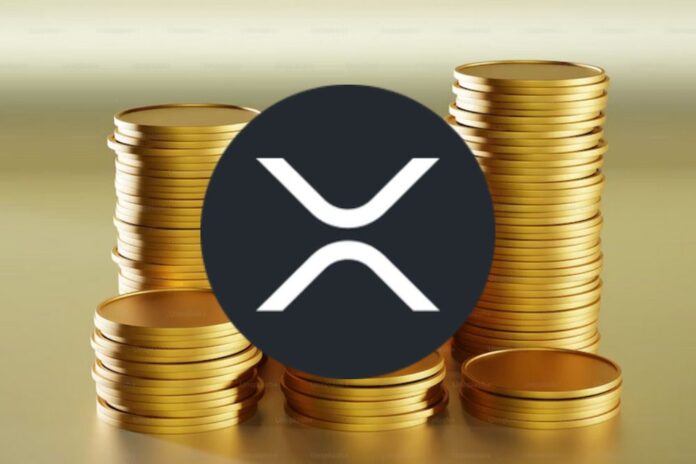In a groundbreaking move, the Members Exchange (MEMX) has submitted a filing to the U.S. Securities and Exchange Commission (SEC) to list an exchange-traded fund (ETF) based on XRP, according to a recent update from XRP Captain.
Structured as a “Commodity-Based Trust,” this filing positions XRP alongside assets like Bitcoin and Ethereum, signaling a growing acceptance of XRP in mainstream finance. The move follows a series of developments in the regulatory landscape surrounding XRP ETFs, making this a significant step for institutional and retail investors.
Recent Developments in XRP ETFs
Momentum for an XRP ETF has been building in recent months. Grayscale Investments recently filed for XRP ETF. The SEC has acknowledged the application, a crucial step that indicates the regulator is open to reviewing the case.
In addition, the approval of spot Bitcoin ETFs by major institutions, including BlackRock and Fidelity, has set a precedent for other digital assets like XRP to gain similar recognition. XRP’s unique positioning as a payment-focused cryptocurrency gives it a compelling use case within financial markets.
Implications of MEMX’s Filing on XRP and the Market
MEMX’s filing of an XRP ETF has several strategic benefits. First, it enhances accessibility to XRP for a wider investor base. Institutional investors hesitant to purchase cryptocurrencies directly due to regulatory or custodial concerns will now have a regulated and familiar investment vehicle through an ETF. This makes XRP more attractive to hedge funds, asset managers, and retail investors who prefer exposure to digital assets via traditional markets.
Secondly, the filing signifies greater market validation for XRP. By listing XRP alongside commodities such as Bitcoin and Ethereum, the ETF classification strengthens the perception of XRP as a legitimate financial asset rather than just a speculative cryptocurrency. This could improve investor confidence, encourage further adoption, and drive up demand for XRP in retail and institutional sectors.
Liquidity and market stability are also crucial aspects of this development. With the introduction of an ETF, large-scale investment firms can participate in XRP trading without direct exposure to crypto exchanges. This could significantly increase trading volumes, reduce price manipulation, and provide greater liquidity to the market, making XRP less susceptible to extreme volatility.
Additionally, the implications for XRP’s long-term value are substantial. Approval of the ETF could establish XRP as a preferred digital asset for cross-border payments and institutional settlements. XRP’s primary use case has always been facilitating efficient and low-cost international transactions, and an ETF would further solidify its role within the financial ecosystem.
We are on twitter, follow us to connect with us :- @TimesTabloid1
— TimesTabloid (@TimesTabloid1) July 15, 2023
The Role of MEMX’s High-Profile Partners in XRP’s Growth
The significance of MEMX’s XRP ETF filing is amplified by the backing of its elite consortium of financial giants. MEMX was founded by institutions such as J.P. Morgan, Bank of America, BlackRock, Citadel Securities, Fidelity Investments, Goldman Sachs, Citigroup, Charles Schwab, Morgan Stanley, Jane Street, Optiver, UBS, Virtu Financial, and Wells Fargo, among others. These entities’ collective influence and expertise bring several advantages to the XRP ETF’s potential success.
Firstly, MEMX’s robust infrastructure, backed by top-tier financial firms, ensures that the ETF operates on a highly efficient, transparent, and scalable trading platform. This technological edge enhances the security and reliability of XRP trading, attracting more institutional participants.
Secondly, these firms bring deep regulatory expertise, which could be instrumental in facilitating the approval process and ensuring compliance with SEC requirements. The involvement of such well-established financial institutions increases the credibility of the ETF and reduces potential hurdles in securing regulatory approval.
Finally, market influence plays a crucial role. With institutions like BlackRock and Fidelity involved, the ETF could gain significant traction among global investors. These financial giants’ participation means greater marketing power, better liquidity, and broader adoption of XRP across multiple economic sectors.
MEMX’s filing to list an XRP ETF marks a transformative moment in the crypto market, bridging traditional finance with digital assets. With the increasing acceptance of XRP as a commodity-based asset and the backing of some of the world’s most powerful financial institutions, this ETF could propel XRP into mainstream financial adoption.
The benefits of enhanced accessibility, market validation, liquidity, and institutional interest all point to a brighter future for XRP. If approved, this ETF could redefine XRP’s role in the global financial landscape, cementing its status as a leading digital asset for payments and investment.
Disclaimer: This content is meant to inform and should not be considered financial advice. The views expressed in this article may include the author’s personal opinions and do not represent Times Tabloid’s opinion. Readers are urged to do in-depth research before making any investment decisions. Any action taken by the reader is strictly at their own risk. Times Tabloid is not responsible for any financial losses.
Follow us on Twitter, Facebook, Telegram, and Google News


